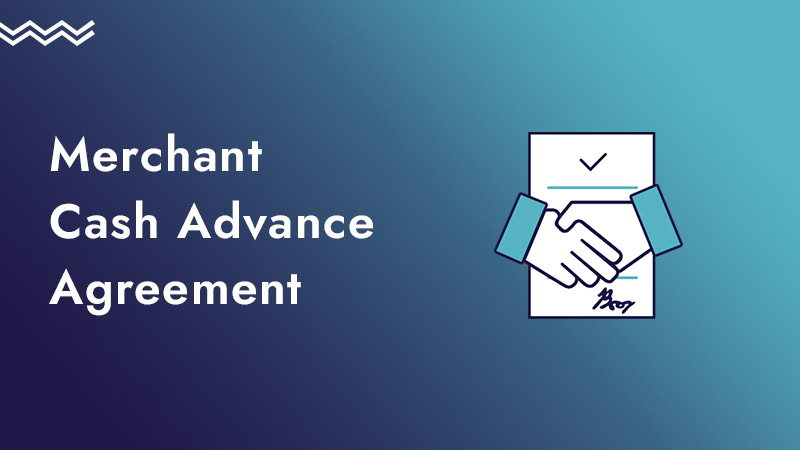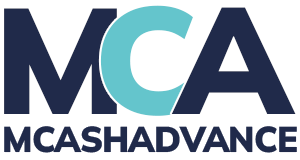
Merchant cash advance agreements aren’t like traditional loan contracts. Every provider writes their own, and because the MCA industry isn’t federally regulated, there’s no standard template. That means it’s up to you to read every line and understand what you’re agreeing to before you sign.
We fund business owners every week. We’ve seen how confusing these documents can be, especially when they use vague language or include legal clauses that carry real risk. That’s why we created this article. We’ll walk you through what’s in a typical MCA agreement, what each section means, and what to check before you commit.
What Is an MCA Agreement and How Does It Work?
An MCA agreement is a legally binding contract between your business and a provider like us. It confirms that you’re selling us a portion of your future receivables in exchange for a lump-sum cash advance. The agreement explains how much we’ll give you, how much you’ll owe in total, how repayments will be collected, and what happens if something goes wrong.
Unlike a loan, there’s no interest rate or monthly schedule. We’re buying your future card sales at a discount, and that transaction creates its own set of legal terms and repayment methods.
Key Sections in Every MCA Agreement
Most MCA agreements include the following terms. Some may be worded differently, or placed in separate documents, but these are the key areas to look for and understand.
Effective Date
This is the date the agreement becomes active. It’s usually the same day we fund your account. From that date forward, the contract terms apply.
Purchase Price and Receivables
This section confirms how much we’re advancing to you and how much in future receivables we’re entitled to collect. We purchase those receivables at a discount using a factor rate.
Factor Rate
A factor rate is a multiplier, not an interest rate. If your factor rate is 1.35 and we advance you $50,000, you owe $67,500 in total. The time it takes to repay depends on your daily sales, not a set term.
Repayment Terms
Repayment usually happens through daily deductions. This can be done in two ways:
- ACH authorization: We pull a fixed amount daily from your bank account.
- Split processing: A credit card processor (like Square or Stripe) withholds a fixed percentage of your daily card sales and sends it to us.
Make sure you know which method your agreement uses.
Holdback or Specified Percentage
This is the percentage of your daily sales we’ll collect. If your sales slow down, your daily payments drop too. But some providers also set minimum payment thresholds, check if yours does.
Reconciliation Clause
Some agreements allow for reconciliation. That means if your revenue drops significantly, you can request a review and temporary adjustment to your holdback. This clause protects your cash flow. Not every provider offers it, but we include it in some cases.
Fees and Additional Costs to Look For
MCA agreements can include several types of fees. You won’t always hear about these during the application stage, so you need to check the agreement itself.
Origination Fees
Some providers charge an upfront fee to process your advance. We don’t. But if your agreement lists one, it should be clearly stated.
Processing Fees
You might see recurring charges for ACH processing, document handling, or administrative tasks. These fees are often small but can add up.
Early Repayment Terms
Most MCA agreements don’t offer a discount for early payment. You’ll still owe the full amount based on the factor rate. Some even include early payment fees or termination fees, costs charged if you pay off the advance before the provider earns their expected return. Watch for this clause.
Renewal Terms
Some agreements allow you to apply for additional funding before you finish repaying the first advance. This is called renewal. It often comes with new fees or new repayment terms. Understand what triggers this option.
Late Payment Fees
Even though repayment is automated, technical issues or account freezes can trigger late payment fees. Check if these apply in your agreement.
Legal Clauses That Create Risk
Here’s where things get serious. Many MCA agreements include legal language that gives the provider additional collection rights. These clauses matter, especially if you run into financial trouble.
Personal Guarantees
Even though MCAs are unsecured, some agreements make you personally liable through a personal guarantee. That means if your business fails, we may still pursue repayment from you directly. This can include seizing personal assets like your savings or property.
Confession of Judgment
This clause allows the provider to file a court judgment against you without a trial. If it’s in your agreement, it means you’ve agreed not to contest the debt in court. We don’t use this clause, but some providers do.
Arbitration Clause
Some agreements require you to settle disputes through private arbitration, not court. If the clause is binding, you lose the right to appeal or take legal action later.
UCC Lien
Most providers file a UCC-1 lien against your receivables. This gives them the legal right to collect from your future income. It also means you can’t sell or transfer those receivables to anyone else until the advance is repaid.
Additional Guarantees
Some providers may ask for a co-signer, additional collateral, or personal property guarantees. If your agreement includes these, understand what’s at stake.
What to Do Before You Sign
Before you commit to an MCA, here’s what we suggest:
1. Read Every Word
Don’t skip to the signature page. Go through the full agreement and supporting documents. Look for terms around fees, repayment, and legal rights.
2. Match the Terms
Make sure the agreement reflects what you were told. Compare it to your original offer or email summary. If something changed, ask why.
3. Ask About Anything That’s Unclear
We’re here to answer questions. If a term is vague or confusing, get it explained in plain English. A good provider will walk you through it.
4. Spot the Red Flags
Watch out for confession of judgment, early payment fees, or vague arbitration terms. These clauses often work against you in the long run.
5. Get Legal Input
If you’re unsure, speak with a business attorney. They can review the document and flag anything risky. It’s a small cost that could save you later.
We’ve seen business owners make the mistake of signing agreements they didn’t fully understand. If you’re not sure about any section in your MCA agreement, bring it to a legal or financial professional. It’s better to ask now than deal with the consequences later.
If you have questions about any part of your agreement, we’re happy to explain it line by line. That’s part of what makes us different from other providers.
Ready to Apply?
or learn more about MCA bad credit

